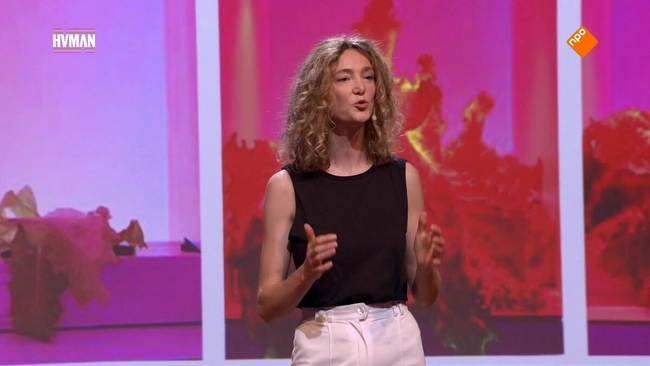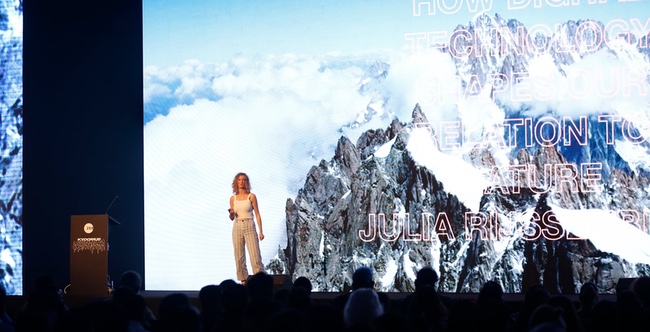Julia Rijssenbeek

Julia Rijssenbeek philosopher and researcher on the intersection of technology and ecology. In her PhD research on Philosophy and Ethics of Technology at Wageningen University, she focuses on biotechnological fields like synthetic biology, where life and technology meet in new and more intimate ways. Julia’s research is part of the Gravitation program Ethics of Socially Disruptive Technologies (ESDiT). During her research, Julia was a visiting scholar at the Wyss Institute Biologically Inspired Engineering at Harvard University, applying and developing a model of Collaborative Ethics in the lab.
Next to that, she is a researcher at FreedomLab, a future studies think tank analysing societal change by analyzing geopolitical, technological and socio-cultural developments and building scenario’s for the future. Here Julia focuses primarily on the future food system.
In interdisciplinary projects, she explores and speculates on future human-technology-nature relationships through art. Her film Cobalt (2024) was selected for the International Science Film Festival Nijmegen.
Julia speaks about the future of food and agriculture, geopolitics of food, biotechnology, climate change, changing human-nature-technology relationships.

Examples of Julia’s keynotes:
Future of Food
Our food system is at a turning point. After years of progress, hunger is on the rise again, our global value chains are vulnerable to geopolitical tensions, and climate change is putting pressure on food production. Instead of simply ramping up food production, a shift towards a better food system is inevitable, one that produces food with the health of both humans and the planet in mind. What does this shift look like, what are the merits and drawbacks of technological innovations in it, and what do future food systems look like?
Bio-centrism
We are reaching planetary boundaries, there’s no easy way out of the climate crisis, and natural ecosystems are under pressure. Progress is slow, but everyone is realizing that we need to commit to a systemic change. But how?
Julia discusses why environmental policies have failed so far, the shortcomings of ‘green’ and ‘sustainable’ developments, critically examines buzzwords like the bio-based economy, and discusses the options we do have. She addresses the concepts of the Symbiocene and post-humanism, multi-species and more-than-human thinking, nature-based solutions, regenerative design, and the importance of biodiversity.
Human-Nature-Technology Relationships
How should we relate to nature in a different way? Western thinking often presents two solutions to the current ecological crisis: ecomodernism and ecology. Ecomodernists aim to navigate out of the current climate problems through technology and science, while ecologists argue that this approach has led us into trouble. These are again two major Western perspectives that dominate many debates about the future (energy, food, resources, emerging technologies).
How can we develop meaningful relationships with our natural and technological environment? Julia discusses alternative views and presents different visions of the future through philosophy, film, and dance. Her six-minute film Cobalt (2024) explores these themes and was selected for the InScience science film festival.
Biotechnology
New technologies seem to be becoming increasingly ‘alive,’ such as AI displaying more self-learning, autonomous, and adaptive behaviors. At the same time, we are increasingly leveraging biology in building technological solutions, as seen in biotechnology. Technology and biology appear to be merging more and more.
Julia discusses breakthroughs in synthetic biology and other areas of life sciences to illustrate what this fusion looks like, what our technology can learn from biology, and which domains (medicine, food, materials, fuel, mining) could be transformed as a result.
The Role of Nature in Our Technological Future @ THE FUTURE SUMMIT 2020, Pakistan
Julia speaking at the Kyoorius Designyatra 2019 (India):

